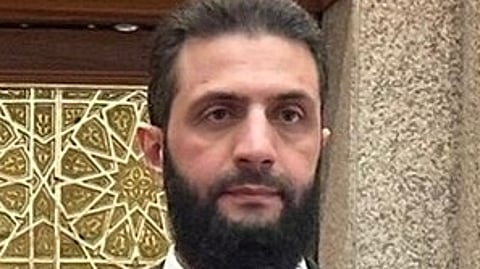

Syrian leader Ahmed al-Sharaa visited Paris on Wednesday, meeting with French President Emmanuel Macron in his first trip to Europe since taking power in December of last year.
The meeting signals a potential shift in Syria’s geopolitical alignment, as al-Sharaa appears to be moving closer to Western interests since his rise to power.
In a joint statement released following their meeting, al-Sharaa confirmed that Syria is currently engaged in indirect talks with Israel aimed at easing tensions following recent Israeli airstrikes on Syrian territory.
Macron also indicated that France would support the eventual lifting of European Union sanctions on Syria, provided Damascus “remains on its current course.”
Al-Sharaa's visit comes amid escalating sectarian violence in Syria. In March, clashes led to the deaths of an estimated 1,700 people, most from the Alawite community. More recently, fighting between government forces and the Druze population over the past two weeks has resulted in dozens of deaths, with disturbing footage circulating online allegedly showing executions of non-combatants.
French opposition leader Marine Le Pen, head of the National Rally party, condemned Macron’s decision to host al-Sharaa. She pointed to al-Sharaa’s past, along with several members of his government, alleging links to Al-Qaeda and a history of espousing radical Islamist ideology.
Al-Sharaa remains under a UN travel ban, and France likely had to seek a special exemption to facilitate his visit.
Since the overthrow of Bashar al-Assad’s government in December, the new Syrian administration—led by Hayat Tahrir al-Sham, a group with origins in Al-Qaeda’s official Syrian affiliate—has implemented several measures that align with Western policy interests. These include the arrest of Palestinian officials based in Damascus and efforts to curb weapons smuggling to Hezbollah.
Analysts suggest these moves are part of a broader strategy to gain sanctions relief, as Syria's economy has been devastated over the past decade. At the same time, the country remains militarily vulnerable following the destruction of its air force and air defense systems by Israel after the fall of the Baathist regime.